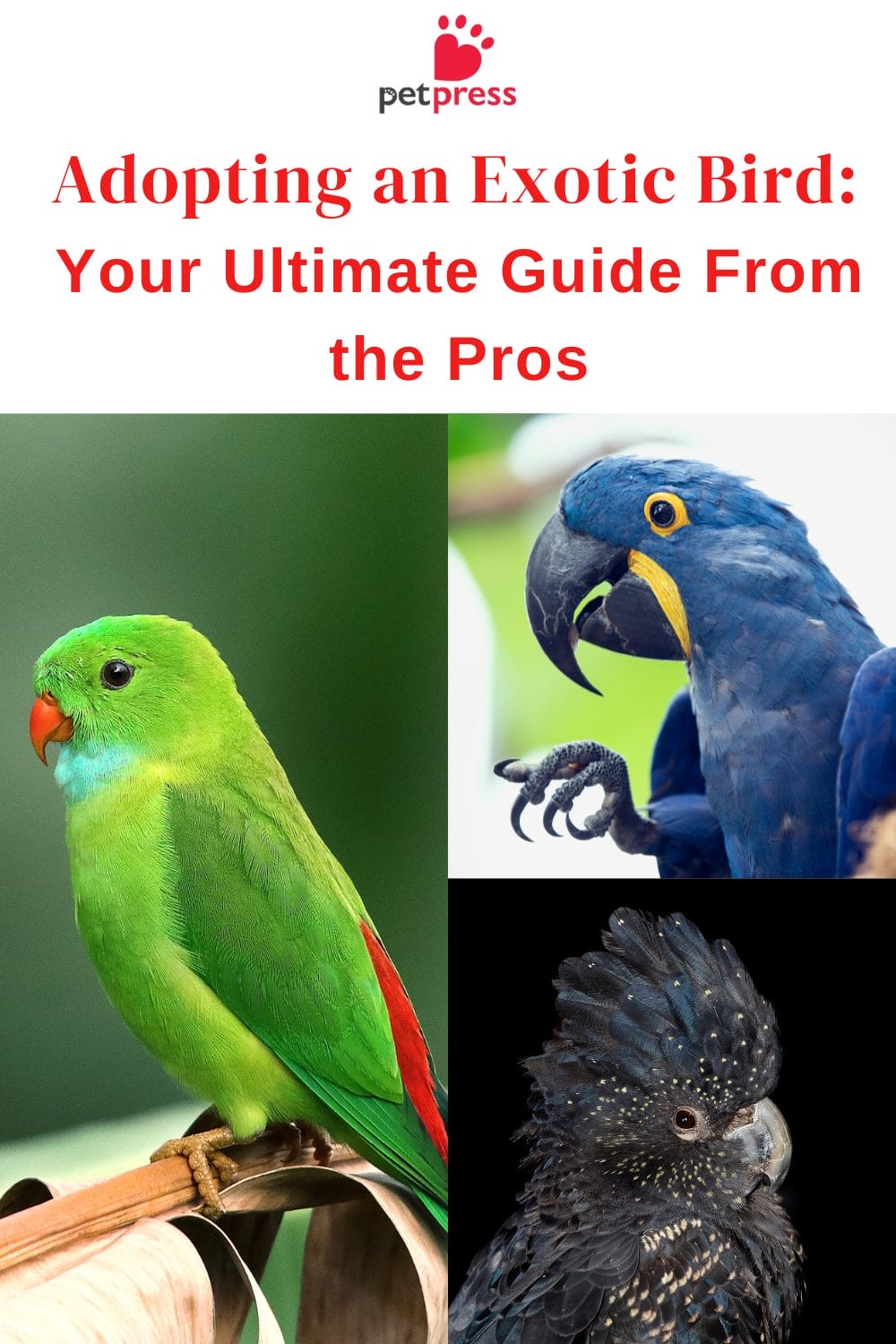
Adopting an exotic bird can be the start of a vibrant journey. These feathered friends bring color and song into any home. They’re not your everyday pet. Each bird is a unique splash of life.
Exotic birds offer a special charm with their bright feathers and quirky personalities. Unlike a dog’s wagging tail, a bird’s cheerful chirps create a melody that turns a household into a harmonious haven. Their companionship is as unique as their plumage.
What are the exotic birds?
When we say ‘exotic bird,’ we’re talking about a wide variety of species that aren’t your typical backyard sparrows or robins. These are birds that are often native to tropical and subtropical regions of the world.
Think parrots, macaws, and cockatoos – birds with vivid colors and often the ability to mimic speech. They’re a less common choice for a pet, far from the usual dog park visitors.
Exotic birds stand out because they require special care, from climate control to dietary needs that mirror their natural habitats. It’s this uniqueness that draws enthusiasts to them. They’re not just pets; they’re a slice of the wild, a piece of a jungle or rainforest, living and breathing in our living rooms.
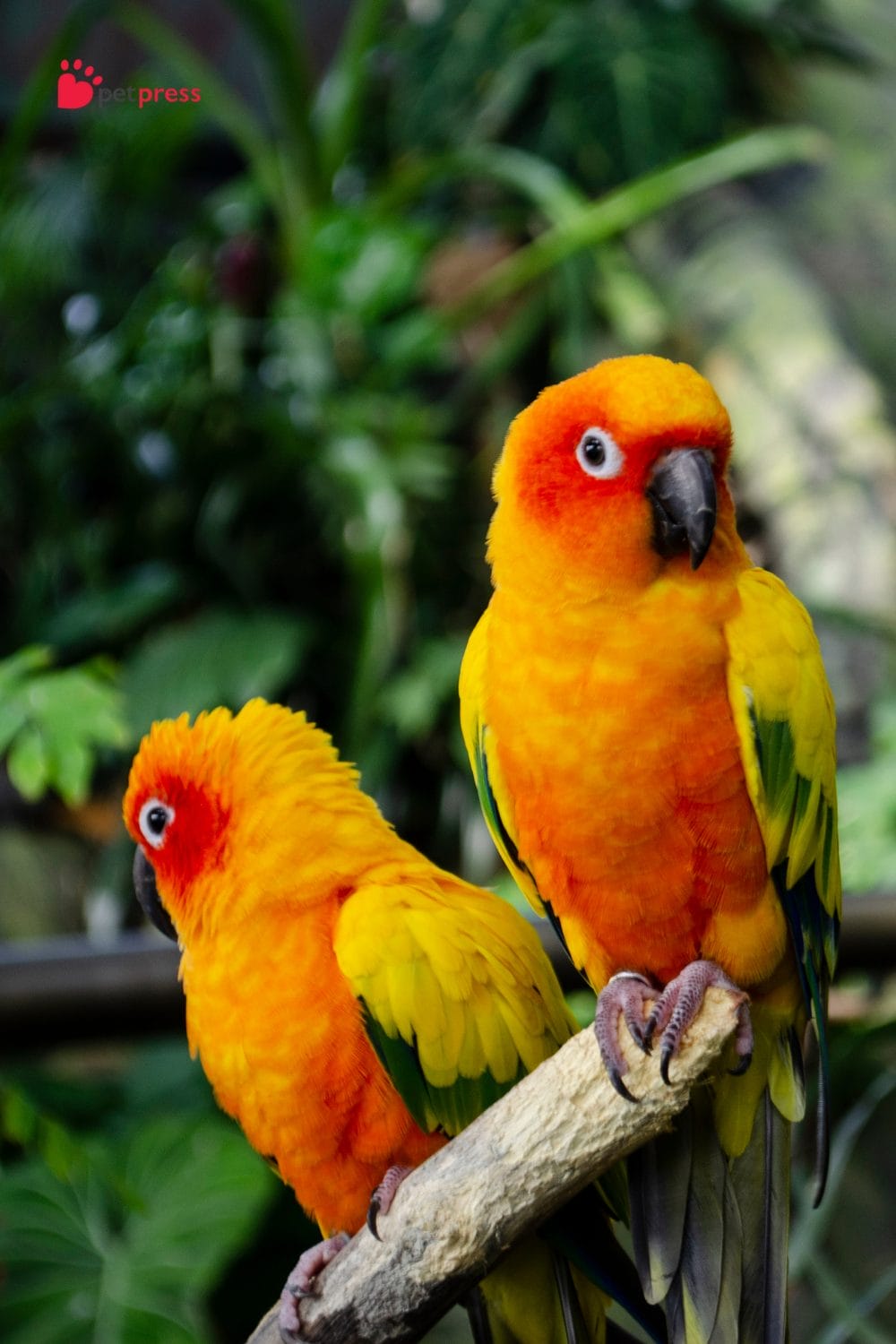
The Unique Needs of Exotic Birds
Exotic birds captivate with their allure, but their unique needs are as varied as their plumage.
They have complex diets
Exotic birds can’t thrive on just seeds. Their diets are complex, much like their personalities. Fruits, vegetables, and specially formulated pellets make up their menu. It’s a blend of nutrition that keeps their feathers brilliantly colored and their energy soaring.
They like native climate
These birds need a bit of their native climate in your home. Warmth and humidity are often key to their comfort. Simple things like room temperature and lighting can affect their mood and health. Tailor their space, and they’ll show their contentment with every chirp and squawk.
They need an avian specialist
Regular vet visits are a must, but not just with any vet. These birds need an avian specialist who understands their unique physiology. Preventive care for exotic birds is just as crucial as it is for any dog or cat. Ensuring they’re in tip-top shape keeps their melodies flowing.
They like social interaction
Exotic birds are social creatures, much like dogs. They crave interaction and can form strong bonds with their owners. A lonely bird can become a sad bird, so interaction is key. Sharing time with them can forge a friendship that’s truly irreplaceable.
Adopting an exotic bird means stepping into their world and understanding their special needs. Give them what they require, and they’ll give back with vibrant life and companionship.
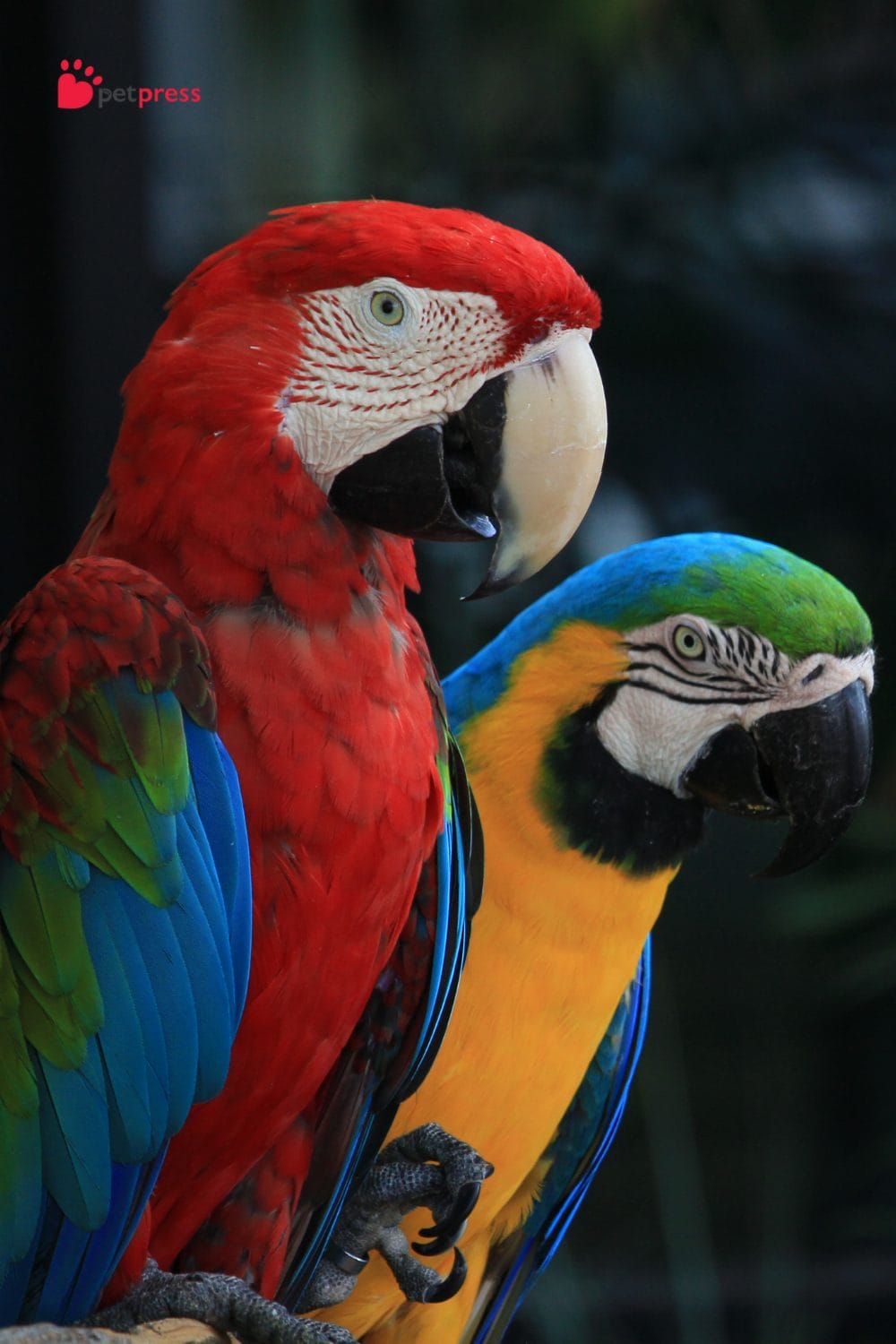
How to Prepare to Bring Your Bird Home
Before your exotic bird makes its landing into your life, setting the stage is key. Think comfort, safety, and a touch of the tropics.
Essential Preparations for Your Bird’s Arrival
- Choose the Right Cage: Size matters, so go big, allowing room for wings and toys.
- Select a Safe, Quiet Location: Avoid drafts and noise, picking a spot that’s calm but social.
- Bird-Proof Your Home: Tuck away cables, toxic plants, and anything small enough to be swallowed.
- Stock Up on Supplies: Get perches, food dishes, and toys to keep your bird engaged and fed.
Creating a safe and welcoming environment is crucial when adopting an exotic bird. It’s about more than space; it’s about crafting a haven that mimics their natural habitat.
A stress-free zone encourages your bird to thrive, not just survive. With the right set-up, your bird will feel right at home, ready to join the family with a happy squawk and a flutter of wings.
How to Pick Your Ideal Exotic Bird Companion
Selecting the perfect exotic bird isn’t just about the bright feathers; it’s about finding your new best friend.
- Consider Your Lifestyle: Busy bees might want a bird that’s a bit more independent, like a canary.
- Space Requirements: Birds like macaws or African greys need room to spread their wings. Ensure you have ample space.
- Noise Level Tolerance: Some exotic birds are chatty, while others are quiet. A parakeet’s song is less demanding than a cockatoo’s call.
- Interaction Needs: If you’re looking for a bird that loves to cuddle, maybe a conure over a finch is the right choice.
- Maintenance Needs: Every bird needs care, but some require more grooming and cleaning than others.
- Longevity: Remember, some of these feathered pals have lived for decades. It’s a long-term commitment.
When it comes to adopting an exotic bird, think beyond the bright feathers and choose a bird that fits your world. It’s about the harmony between your lifestyle and the bird’s needs.
A quiet home might not mix well with a loud parrot, no matter how striking they might be. It’s the compatibility that will craft a lasting bond, turning your choice into a part of the family.
Expert Vet Care and Special Nutrition
When it comes to exotic birds, their health hinges on two pillars: expert vet care and tailored nutrition.
Specialized Veterinary Care for Exotic Birds
- Avian Expertise: Birds must be cared for by vets who specialize in avian medicine, as their health issues are unique.
- Regular Check-ups: Routine vet visits can catch early signs of illness, much like they do for dogs.
- Vaccinations: Protect your bird from common ailments with the right set of vaccinations.
- Emergency Preparedness: Have a plan for urgent care, just as you would for any other family pet.
Proper Nutrition and Diet
Just like dogs have breed-specific diets, exotic birds thrive on a diverse spread. Fruits, veggies, nuts, and fortified seeds are the foundation of their eating habits.
Each bird species has its favorites. African Greys may prefer a mix with calcium for strong bones, while macaws might need more nuts for energy. Catering to their species-specific needs means healthier, happier birds.
Ensuring your exotic bird has access to professional vet care and a diet suited to its species will keep your feathery friend chirping joyfully for years to come.
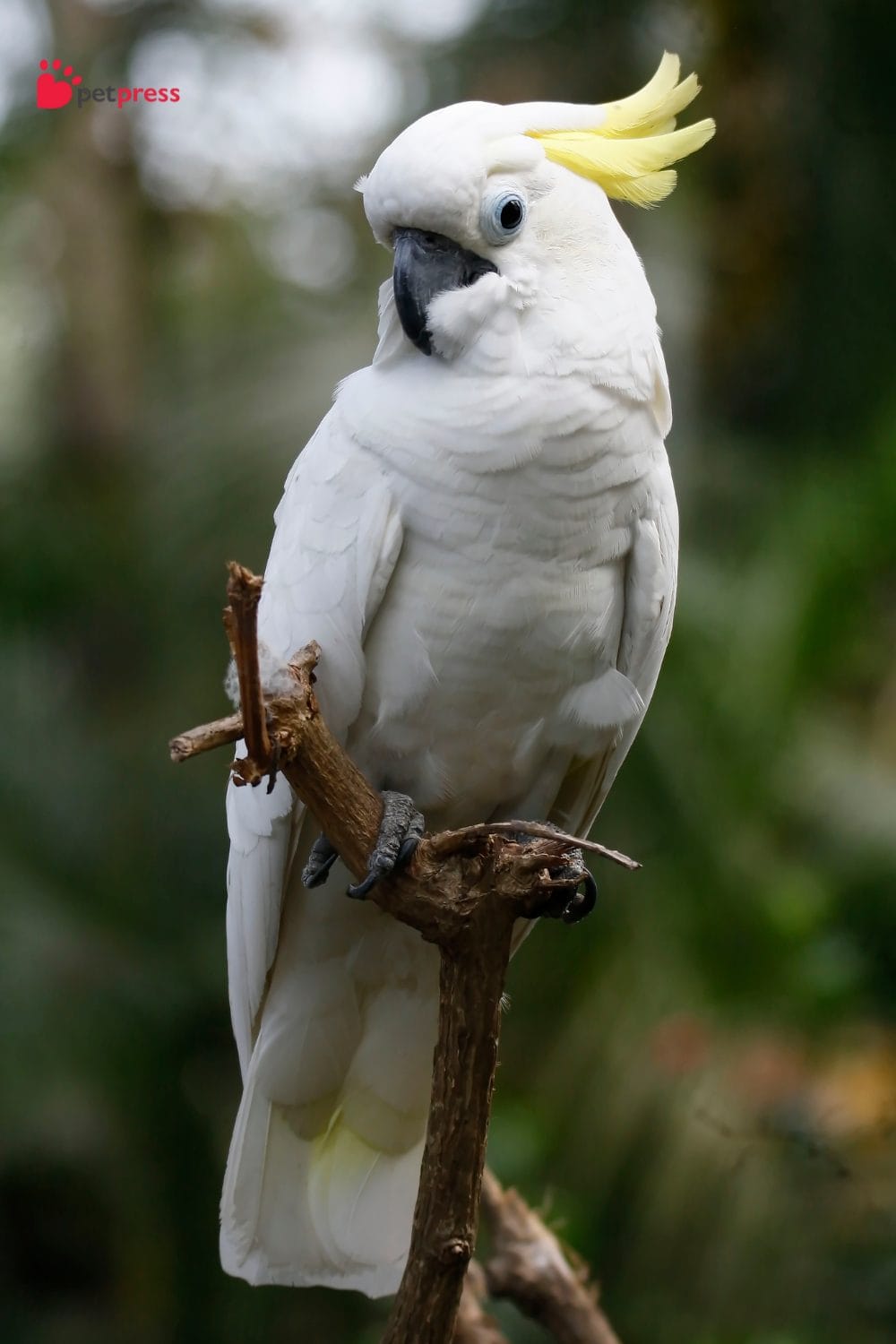
Training the Exotic Bird
Training isn’t just for dogs. Exotic birds also thrive on learning new things and socializing.
Mental Stimulation for Exotic Birds
Keeping an exotic bird mentally stimulated is as important as feeding them. A bored bird can become stressed or even develop behavioral problems. Puzzles, games, and learning tricks keep their mind active. This stimulation leads to a happier, healthier bird.
Socializing With Other Pets
- Start Slow: Introduce your bird to other pets gradually and in a controlled environment.
- Monitor Closely: Always supervise interactions between your bird and other pets, especially in the beginning stages.
- Respect Space: Ensure your bird has a safe space where it can retreat from other pets.
- Consistency is Key: Regular, short interactions help build a routine and comfort among your pets.
Birds might not fetch like dogs, but they can learn a surprising amount of tricks and commands. Plus, a well-socialized bird is a joy to have in a multi-pet household. Take your time, be patient, and watch a beautiful friendship take flight.
Commitment and Longevity of Exotic Birds
Embracing an exotic bird is not just a fleeting moment but a journey that spans years, even decades.
Understanding the Commitment
Welcoming an exotic bird into your home isn’t a fleeting choice. These birds, full of life and charm, will be with you for the long haul, often sticking around longer than the typical family dog.
Caring for them is a real adventure, demanding that you’re up for all their special requirements and the unique spark they add to everyday life. It’s about being prepared to step into their world and letting their extraordinary quirks dance to the beat of your routine.
The Lifespan of Exotic Birds
Exotic birds come with a promise of time that can match the journey of raising a child. Many of these feathered friends, especially parrots and macaws, can stick by your side for 50 years or even longer.
This means signing up for a long-term commitment, giving them a spot in your life’s tapestry for decades. It’s not just about enjoying their company now; it’s about planning for the many years you’ll be sharing together.
Each breed brings its own mesmerizing story that, with proper care, can unfold over many years, creating a bond that’s as deep as the roots of an ancient tree.
Get to Know the Responsible Adoption of Exotic Birds
Many exotic birds face threats that put them at risk worldwide. Habitat loss and illegal trade are their biggest challenges. They’re not just pets; they’re part of our world’s natural heritage.
Ethical Adoption Practices:
- Choose accredited sanctuaries or breeders.
- Avoid wild-caught birds to discourage harmful trade.
- Look for adoption fees that support conservation.
When you adopt, you’re supporting the species’ survival. Take a stand against the illegal bird trade. Be a hero for these winged warriors.
Why Reputable Sources Matter:
- They prioritize bird welfare.
- They educate you on bird care.
- Your adoption fee helps protect endangered species.
Adopting an exotic bird is a heartfelt commitment. By choosing responsible sources, you protect these magnificent creatures. Let’s keep their future as bright as their feathers.
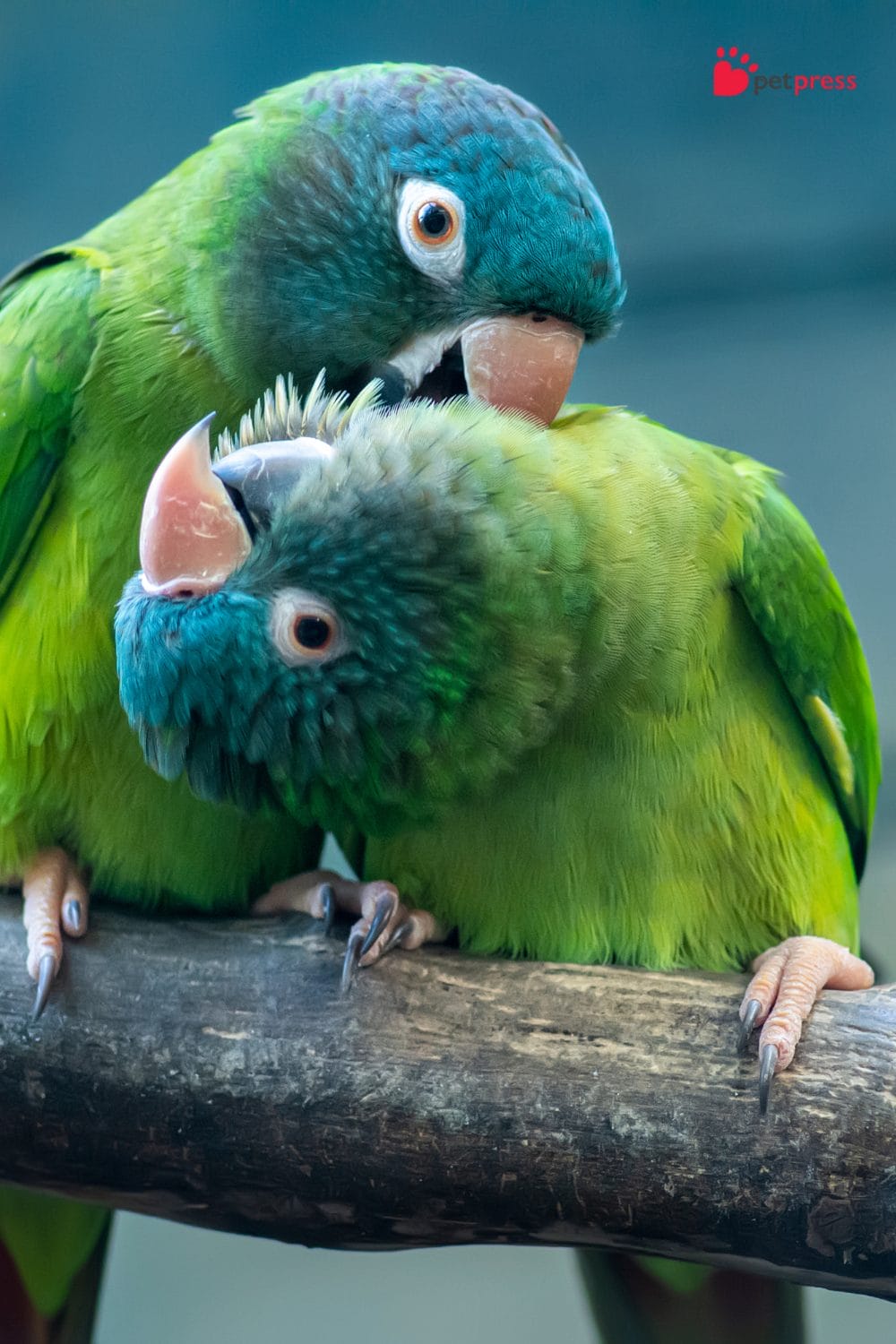
Final Thoughts: Is an Exotic Bird Right for You?
Adopting an exotic bird is a journey into a world of vibrant colors, lively songs, and unique companionship. It’s a commitment to understanding and meeting the specialized needs of a creature that’s as wild as it is beautiful. Like any pet, but perhaps even more so with birds, it’s about forming a bond that respects their essence and enriches your life.
Weigh the joy against the responsibility. If your heart flutters at the thought of feathered antics and you’re ready for the dedication, then perhaps your home is ready for the melodic presence of an exotic bird. But remember, it’s not just about brightening your life; it’s about ensuring the well-being of these magnificent creatures.
FAQs About Adopting an Exotic Bird
This depends on the bird’s personality and the child’s behavior; some exotic birds are very social, but others may not be suitable for young kids.
Yes, many exotic birds can learn tricks and mimic words, similar to teaching commands to a dog, but it requires patience and consistency.
Costs can vary widely, but consider vet bills, quality feed, and habitat setups. It’s an investment akin to caring for a high-maintenance dog.
It’s possible, but careful introduction and supervision are key, especially around pets like dogs and cats.
Many species are highly social and may benefit from having another bird friend, but human companionship can also suffice with ample interaction.
- Does Cat Litter Melt Ice? The Complete Guide to Winter Safety - January 30, 2026
- Happy Tail Dogs: Understanding This Common Canine Condition - January 29, 2026
- How Cold Can Outdoor Cats Handle? Feline Winter Safety - January 27, 2026


GIPHY App Key not set. Please check settings